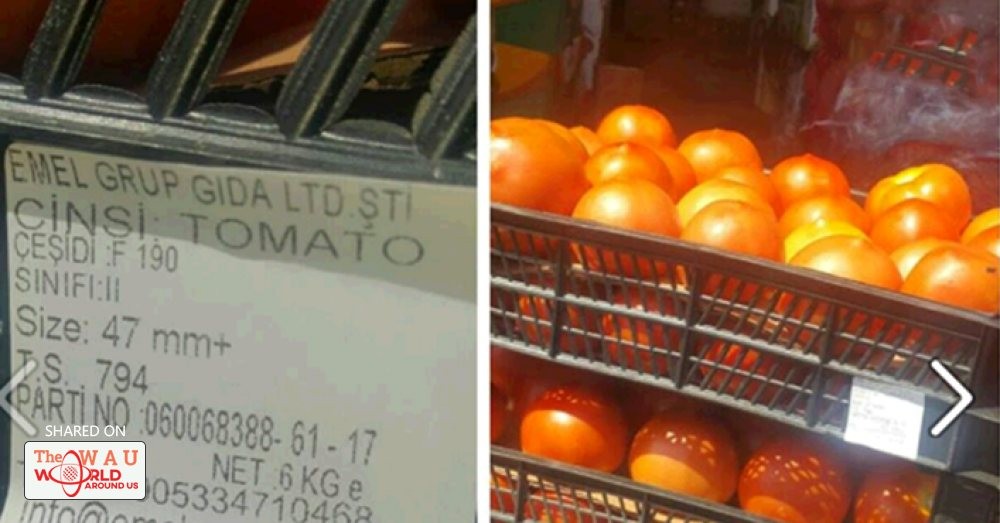Israeli farmers are continuing with their fight against the importation of tomatoes from Turkey. The imports are expected to flood Israeli supermarkets, as Israeli grown tomatoes are left to rot in their fields.
Dozens of Israeli farmers decided to take matters into their own hands and physically go to the port of Ashdod to protest against the imports coming in.
Tamar Shlomo from Moshav Mivtahim in the Gaza border area was one of the people who came to protest the shipments. After her husband died six and a half years ago from heart failure, she decided to continue his legacy by continuing to grow produce, along with raise four children.

In fact she believes that her husband died because he didn’t have the strength to deal with the crises in Israeli farming.
"My husband was active and a wonderful and skilled farmer. What killed him were the constant battles with the middle-men, the suppliers, and the store chains. His heart became weak and he couldn't take it."
"The government makes it a lot harder with the imports, the taxes, and added taxes on foreign workers," Shlomo says. "I grew up in the Gaza border area. I've worked with the threat of terror and Qassam rocket attacks, yet I never gave up. But the terror that the government is causing us is much worse than the Hamas terror which we suffered from."
She added that "we the farmers go to war every day. To war against the supermarket chains, against the imports. If I would have known that this is what Israeli agriculture truly is, I might not have gotten into it."
Barak Omega, a farmer from Moshav Paran in the Arava valley, added that "the country decided to import (produce) to meet the needs of the average citizen. The state opened the floodgates, but didn't remember to protect (its own farmers). The supermarket chains understood this and stopped buying from Israeli growers because the imports give them better options."

"Trade (in produce) was started to help lower the cost of living. However, while some farmers are destroying their crops (because there is no one to sell them to), the supermarket chains are expanding their bottom lines, and the savings go to the supermarkets, not the customers," he continued.
The Israeli Ministry of Agriculture said "a tomato shortage might lead to a jump in prices for the consumer. Lifting (import) quotas was done in a set manner which was planned in advance. It was done to protect the farmers and to ensure a fair price for consumers."
Regarding imports, the Ministry of Agriculture said "we only import tomatoes from outside of Israel when there is a shortage (in Israel) and when the prices have raised past an acceptable level. Therefore, the imports don't actually hurt the Israeli farmer, they just help the Israeli consumer."
Share This Post















